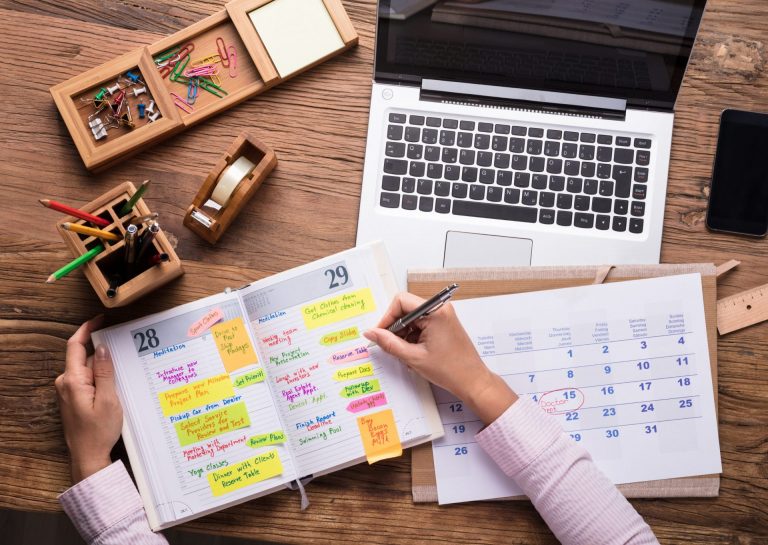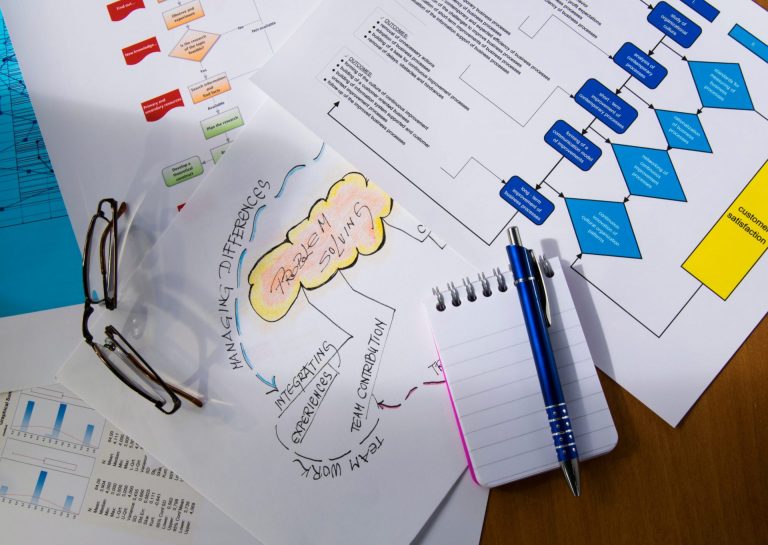
These days, students have been having a difficult time with the SPM tests. The SPM examinations, along with any other kind of test, may be quite stressful for students since there is a lot of expectation on them to do well. Nevertheless, there are a number of things that you may do to improve the efficiency of your preparation for your tests. It is never too early or too late to acquire appropriate study habits. Neither extreme is valid.
When you start a decent study routine sooner rather than later, things will be simpler for you, and your chances of achieving high grades will increase significantly. It is crucial to place more emphasis on the amount of knowledge you have gained rather than the amount of time spent studying. In this article, we will go over some of the most useful study strategies and test preparation suggestions for students, with the goal of assisting them in becoming better students and doing better academically.
Take Care of Your Physical Well-being

Before diving headfirst into your studies, the first thing you should focus on is maintaining your physical and mental well-being, of course. Those who wish to be able to focus and study without feeling sick at any point in the process will find this to be the most important consideration. Taking care of your health and well-being can definitely help you study more effectively by enhancing your memory, mood, and energy levels while simultaneously reducing the amount of stress you feel.
It should come as no surprise that the primary objective in relation to sleep is to acquire enough of it; seven to nine hours is a decent benchmark range. In order to get the best possible quality of sleep, you should try to stay away from screens for approximately an hour before going to bed, as well as caffeine for 4-6 hours before, and you should give yourself some time to relax before going to bed. It is suggested that you go to bed between 9 and 10 at night and that you get up between 5 and 6 in the morning. If you have attempted to sleep but have been unsuccessful, you should go out of your room and do something calming until you feel ready to fall asleep.
Create The Right Study Space

Choose a place that provides you with sufficient light, comfortable seating, and as few distractions as possible in order to maximise your ability to concentrate in that setting. Make sure that everything around you is in its proper place before you sit down to start studying for your examinations. It is important that you have sufficient room around you to store your textbooks and notes.
Choose a setting that will allow you to do the things you like to do, such as listening to music or burning incense. Everyone has their own opinion on the most productive time and location to do their studying. Find a place to study that is conducive to your learning, whether it be your bedroom at night or the library after school, and commit to maintaining a consistent study schedule there.
Make a Realistic Schedule

Some individuals are more productive first thing in the morning. Some people are more productive at night. Determine when you are most productive and make plans to study at that time. Do not stay up much later than your normal bedtime to study since staying up too late might make you too fatigued to study effectively the next day. Look through your list of things to accomplish before beginning your study session, and allocate yourself a certain amount of time to complete each item on the list. If you don’t finish anything within the allotted time, you should evaluate if continuing to work on it is the most productive use of your time or whether you should switch gears and begin working on something else.
If you begin preparing for your test with a solid game plan, you may find that you need less total time to study for it. Create a list detailing the subjects you’ll be discussing and the dates on which you’ll be discussing them. You should get a head start on your studying by beginning your timetable as soon as feasible (often a few weeks before your exam), and you should determine how much time you will need to spend studying each day in order to keep on track.
Revise Past Exam Papers

One of the most efficient methods to learn how to study for tests is to go through prior test questions and give yourself practice exams using those questions. It is beneficial for you to get acquainted with the layout and organisation of the test questions, as this will help you perform better. You will be aware of the tasks that are required of you; for instance, you will be informed of the number of questions from each part that must be answered. This can help you feel more at ease with what will be required of you, however you should still check the directions that are printed on the paper itself to ensure that they are the same.
If you give yourself a time limit, it will not only be excellent practice for making sure that you spend the appropriate amount of time on each segment, but it will also help you determine the time limit. When you practice with the previous test, try keeping track of the time. This will assist you in determining the total amount of time spent on each part. You may get former test papers from your instructor, the library at your institution, or even by doing an internet search.
Take Regular Breaks

You will not be able to work continuously for eight hours. In point of fact, maintaining focus for any longer than an hour and a half at a time is really challenging. It’s possible that some days you’ll be able to do more than others, but in general, one to one and a half hours is probably going to be the most you can handle before needing a break. When you’re studying, it’s crucial to remember to take pauses every so often, particularly if you’re feeling exhausted or irritated. It’s possible that your performance on a job may suffer if you spend too much time working on it. Make sure that when you take a break you walk away from your desk or other places where you study.
Because each person is unique, you should create a study schedule that is suitable for you. If you find that you learn more effectively in the morning, get an early start before stopping for lunch. Or, if you find that you work best in the evening, give yourself a longer break in the middle of the day so that you can wind down more easily in the evening. It is important that you do not allow yourself to feel guilty about spending time outside basking in the sun rather than hunching over your books. Keep in mind that vitamin D is essential for maintaining a healthy brain.
Use Visual Aids on your Study Notes

It is likely to be rather boring if you always perform the same thing, such as looking through your notes on a topic. Make your time spent studying more interesting by switching up the activities and approaches you use. Therefore, you should make an effort to include visual aids in your note-taking! When it comes to reviewing material or getting ready for a test, visual aids might be helpful. You should begin by writing down all you know about a certain subject, and then, as the time for the examinations draws near, you should condense those notes into a diagram that is just one page long. If you have your ideas written down in this way, you will have a much easier time remembering all you need to know when you are delivering the test.
Create mind maps or other types of summary diagrams to see how much information you can recall, and then compare that information to what you have written down. Take note of the places where you have omitted detail or where there are gaps, and then circle back around to go over those sections again. The vast majority of us, on the other hand, have a preferred mode of educational intake. Discover the mode of learning with which you are most at ease and then tailor your studies to match that mode of learning.
Top Pre-U Programs to Study for Students After SPM in Malaysia
#1 Foundation
A foundation program is a study course, originated from the UK, designed to fill the gap between SPM and the level needed to gain entry into a bachelor’s degree program at a university. Foundation programs typically take one year to complete. It is a quicker pathway to a Bachelor’s Degree than other pre-university programs such as A-levels and Diploma.
Recommended Universities to Study Foundation Programs in Malaysia 2023
|
University |
Programme Offered |
Duration |
Intake |
|
SEGi University |
|
1 Year |
Jan, Jun, Sept |
|
Taylor’s University |
|
1 Year |
Feb, Apr, Aug |
|
INTI University |
|
1 Year |
Jan, Apr, May, Aug |
Want to know more about where you can take your foundation at in Malaysia? Contact us now!
#2 A-Levels
Advanced Level Qualifications (A-Levels) is a pre-university program that follows the UK education system. These are subject based qualifications that can lead you to either university, training or work. A-levels can be completed within 1.5 to 2 years. A-levels are completely assessed based on a series of examinations.
Recommended Universities to Study A-levels Programs in Malaysia 2023
|
University |
Programme Offered |
Duration |
Intake |
|
INTI University |
Cambridge A-level |
1.5 Years |
Jan, Jul |
|
Taylor’s University |
Cambridge A-level |
1.5 Years |
Feb, Apr, Aug |
|
UOW KDU |
Cambridge Assessment International Education A Level |
1.5 & 2 Years |
Jul, Aug |
Want to know more about where you can take your foundation at in Malaysia? Contact us now!
#3 Australian Matriculation (AUSMAT)
Australian Matriculation, is a globally recognized pre-university program offered in different institutions around the world. There are two types of Australian Matriculation in Malaysia, South Australian Matriculation (SAM) or SACE International and AUSMAT, also known as, Western Australian Certificate of Education (WACE).
Recommended Universities to Study Ausmat or SAM/SACE Programs in Malaysia 2023
|
University |
Programme Offered |
Duration |
Intake |
|
MCKL |
Australian Matriculation (AUSMAT) |
12-18 Months |
Jan, Jun, Aug |
|
Taylor’s University |
South Australian Certificate of Education (SACE) |
10-18 Months |
Jan, Apr, Aug |
|
Sunway College |
Australian Matriculation (AUSMAT) |
1 Year |
Feb, July, Sept |
Want to know more about where you can take your foundation at in Malaysia? Contact us now!
Recommended Articles to Read;
About Author

Nik Noor Fatihah
I am a student at the National University of Malaysia, where I am now pursuing a degree in business administration with a majoring in marketing. Loves painting, designing, and singing 🙂

